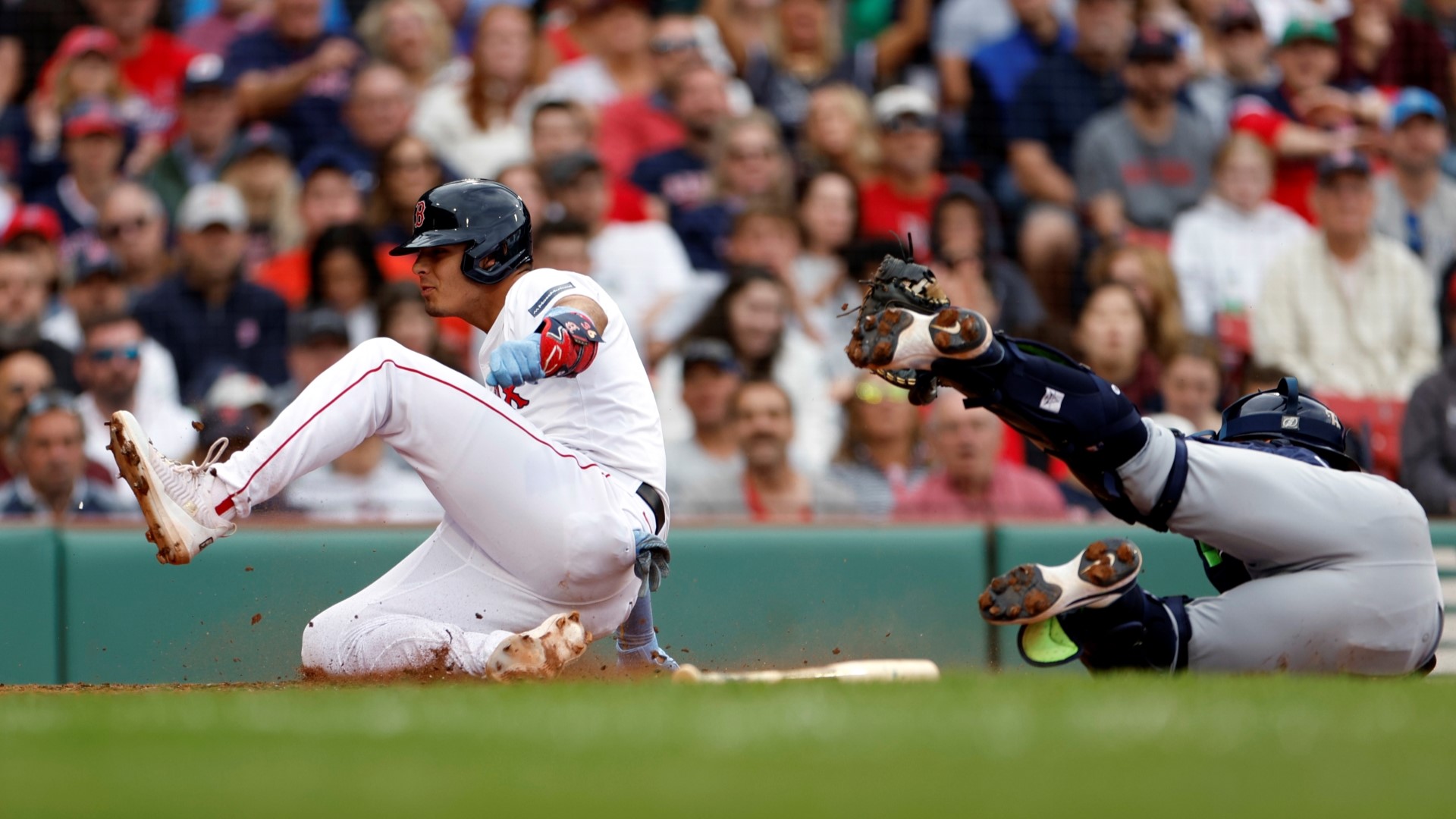The Boston Red Sox have obtained what many would consider the ultimate in mediocrity: a final record of 81-81. Though they got off to a strong start of winning a game and then losing a game, or vice versa, they performed too well during the rest of the season to achieve what I would consider historic mediocrity: the highest percentage of games that ended in a .500 record. Their superior competition ended up being their divisional rival.
The last time we checked in with the Red Sox in the race to .500, in the middle of June, the live standings had them at second all-time behind this year's San Diego Padres. While the Padres' second-half surge completely shed any accusations of mediocrity en route to the playoffs—23 out of their 26 games finished at .500 happened within the first 72 games of the season—the Red Sox gave their fans just a little more hope with an 81-81 finish.
After the 70th game of the season, the Red Sox were 35-35. It wasn't until Game 140 that they returned to .500 with a poetically doubled 70-70 record. But the damage was done. By the time the Red Sox played their final game of the season Sunday with an 80-81 record, they had already tanked their chances at .500 history; there was nothing real to gain from winning the game, except, well, winning. Their series finale was against the 80-81 Tampa Bay Rays, who still held a shot at improving their historical standing with a win.
As the Padres and the Red Sox faded in the race to .500, the Rays made a late run. In the mid-season check-in, the Rays were sitting at a mere 11th in the all-time race. When I reran the script after the Red Sox achieved 70-70, the Rays were in first—they had cinched a top-10 finish and needed only five more games at .500 in order to break the all-time percentage record, and four to break the counting record. But because of some late-game stumbles, by Game 162, the Rays were incapable of breaking either. They did have a shot at finishing 81-81 and improving their position in the ranks, but alas, the Red Sox won Sunday's game, 3-1. The final all-time standings are as follows; no other team this season cracked the top 10.
Most Mediocre MLB Teams since 1947, minus 2020
1. Chicago Cubs, 1959 – 22.7 percent, 35 games
2. Minnesota Twins, 2009 – 20.9 percent, 34 games
3. Atlanta Braves, 1981 – 20.6 percent, 22 games
T-4. Tampa Bay Rays, 2024 – 20.4 percent, 33 games
T-4. Oakland Athletics, 2010 – 20.4 percent, 33 games
T-4. Toronto Blue Jays, 2011 – 20.4 percent, 33 games
7. Chicago Cubs, 1993 – 20.2 percent, 33 games
8. Pittsburgh Pirates, 1999 – 19.9 percent, 32 games
9. Detroit Tigers, 1957 – 19.5 percent, 30 games
10. Houston Astros, 1971 – 19.1 percent, 31 games
If a team fails to be mediocre, does that in a way make it more mediocre? In that lens, the slow arc of the Red Sox toward .500 would still be impressive, since at one point they still had about a 50 percent chance to make the playoffs. Does a late run toward mediocrity matter more than an early run? To me, a truly mediocre team should never give fans any hope of escaping the doldrums. It's worth mentioning that despite the Red Sox finishing 81-81 and the Padres finishing 93-69, the Red Sox still graded out by my system as a less mediocre team—the Padres' early lead meant that even with the final win, the Red Sox still sat one game back, with 25 games finished at .500 compared to San Diego's 26. In response to concerns with the methodology, I shall spend the offseason trawling through the Minnesota Twins' archives and retool my approach accordingly.
What's unquestionable is that the Rays take the 2024 mediocrity crown. By fWAR, their most valuable player this year was infielder Isaac Paredes, who was traded to the Chicago Cubs in July; by rWAR, it was pitcher Zack Littell, who accumulated over half of his career rWAR in his first year as a full-time starter. Perhaps we will remember these guys in the years to come. For now, it's best to let this one lie.






